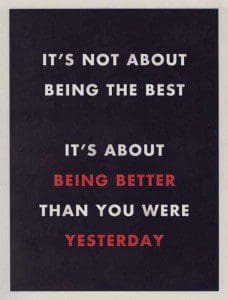If a doctor or medical professional tells you that your child may be depressed, what does that really mean? The trouble with depression is it’s not a rash—it’s hard to “see”—although in research, brain studies can show how the brain can look different in someone who is depressed. So then how does a doctor know that’s what’s wrong?
It comes down to symptoms—these are complaints your child may have or you may notice—that tend to go together in someone who is depressed. Sometimes your child might not tell you they feel this way so it can be tough for you to see the symptoms. On the other hand, they might say they feel fine because they don’t want you to worry, but you definitely notice something is not right. Symptoms include:
- Feeling down most of the day. Maybe your child notices they are just feeling sad, empty, or down in the dumps. They might not even notice—but you might see they are tearful or irritable much of the time.
- Not interested in things they used to like. Things they used to think were fun aren’t fun anymore. They don’t really do them and even if they don’t notice or say they don’t care, you notice the difference.
- Changes in appetite or weight. They’re hungry all the time, or they don’t feel like anything tastes good anymore.
- Problems with sleep. They are tired and sleepy all day even when they get enough rest, or the opposite—they can’t fall asleep no matter how hard they try.
- Tiredness or not having energy.
- They feel like everything is their fault. They feel like they’re no good at anything.
- They have a tough time concentrating or making decisions.
- They may have thoughts of suicide.
MOST important is that because of these symptoms, they are having trouble living the life they want to live.
It might mean they are not achieving their goals, getting to school every day, getting to work, doing the fun activities they used to do, or being the kind of friend they want to be.
A health professional can help you and your child figure out if your child should get treatment for depression or if something else could be causing the symptoms. For example, having a low blood count can cause sleepiness, fatigue, and a tough time concentrating. Sometimes it can take many visits for you, your child, and your health professional to figure out the best way to help.
The most important thing is if you notice these symptoms in your child, something is wrong, and although its easier to say to yourself, “Maybe they will just go away,” often they won’t. The good news is the sooner you do something about them, the better. The brain of the adolescent and young adult is amazing—it is kind of like clay—mold-able into many different things! Talking to a trusted health professional will be your next best step.



 Perhaps you’ve been on both sides of this conversation, maybe you’ve had it with yourself. It’s important to remember that therapy and medication are parts of the self-care and self-love process.
Perhaps you’ve been on both sides of this conversation, maybe you’ve had it with yourself. It’s important to remember that therapy and medication are parts of the self-care and self-love process.












